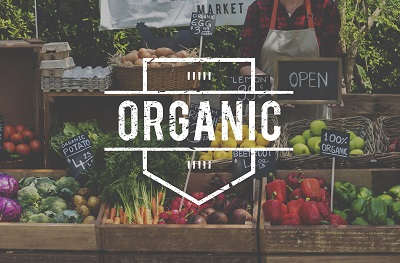 As the world continues to educate on being more health conscious and environmentally aware, the talk of organic foods has come up.
As the world continues to educate on being more health conscious and environmentally aware, the talk of organic foods has come up.
More and more consumers are equipped with the knowledge about the power they have in choosing foods that are better for their health.
If you’re considering the switch from organic to non organic foods, educating yourself on the differences is the best way to assure you’re making informed decisions.
What is Organic Food?
If you were to look up the scientific definition of organic you would find it to mean substances that contain carbon which is an essential element in life.
However, if you were to assume this was the definition for organic foods you might find that everything you consume is organic. Farmers/agriculturalists have altered the definition of organic when it comes to the foods that you eat. For foods to be defined as organic they must not be comprised of any synthetic chemicals.
Organic Foods are Not Grown Using Chemicals
From the start of a seedling as foods are grown, farmers cannot utilize chemically altering materials in the soil. They must utilize manure and composts instead. Chemicals that are often used to keep pests away are also excluded from the farming process for organic foods.
Organic Foods are Not Genetically Altered
There are instances in which growers will genetically modify foods in order to create an advantage. There are some plant types that are cross bread in order to produce either better tasting or hardier strains of produce. The advantage is that genetically modified seeds are resistant to drought and thus have a higher yield.
However, this is not acceptable for foods that are advertised as organic. There are some changes to both plants and livestock that are acceptable for organic foods such as selective breeding methods as well as hand pollination.
Organic Foods can Never Mix with Non Organic Foods
In order for foods to remain organic there can be no chances of them coming into contact with non organic foods. The reason for this is to assure that the chemical treatments and pesticides used on non organic foods do not transfer to what was the organic produce. This means that organic foods will be packaged and shipped differently than traditionally farmed foods.
Organic Foods have Better Health Benefits
As you’re probably already aware another significant difference between organic and non organic foods is that they are safer for you to eat. There are fewer carcinogens and chemicals to deal with and many claim that they taste much better as well.
So, the three main differences between organic and non organic foods are that organic foods differ in their farming process in that they do not use any chemicals or genetically alter it in any way, organic foods are not supposed to be packaged or shipped with non organic foods to prevent potential transfer of chemicals, and organic foods because of their “pure” growing process are said to be more beneficial for you health wise as they taste much better.
Last but not least however, organic foods are much safer for the environment in that farmers only use nature’s resources to grow and nurture the crops.


